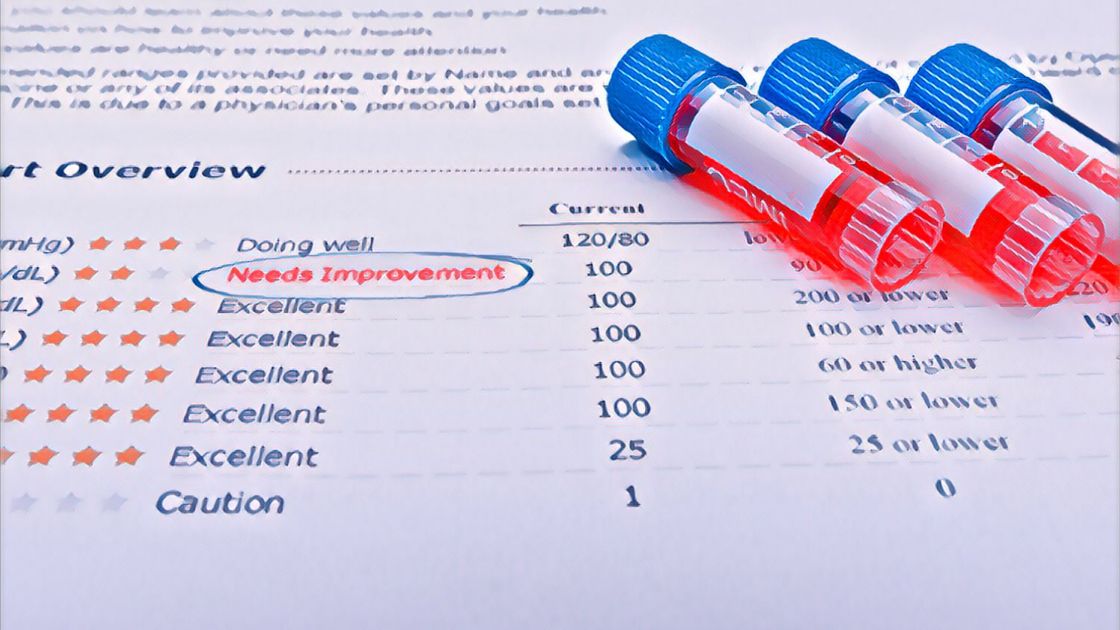Genetics can tell you what you are likely to be susceptible to, such as high cholesterol or low folate. But in most situations, diet and lifestyle factors interact with genes.
The best way to know if a genetic variant is affecting you is to see where you stand with a blood test. For many people, seeing their doctor is the best way to get tested. If you have Medicare or a great insurance plan that covers everything, your doctor’s office is the way to go.
But what if you’re uninsured or have a high deductible? Or if your doctor won’t order a test you want?
In the US (except NY, NJ, and MD), you can order your own lab tests and have them done through LabCorp, Quest, or other lab testing companies.
There are a number of online companies that facilitate this process. However, they all have different prices for the same tests. There is a variable markup on lab tests, and prices depend on the volume the company orders.
Once you have the test done, you can take the results to your doctor to discuss. Be sure to keep track of your results as well.
Testing Companies for Ordering Lab Tests:
I’m going to give you some scenarios below with pricing from some of the online lab ordering places, including Ulta Lab Tests, Own Your Labs, Walk-in Labs, Request-a-Test, and Direct Labs. LabCorp has an ordering portal to order directly from them, but they have a very limited number of tests at this time.
Blood draw:
Be sure to check with the company to find out where to get the blood drawn. Most will send you to a LabCorp or Quest office, but sometimes there are other options. Also check to see if there is a charge for the blood draw (usually not if it is at LabCorp or Quest).
Coupons:
Some of these testing companies offer coupons or frequent sales, so look for current coupon codes. Sign up for UltaLab’s email newsletter, if you decide to go with them. They send out coupon codes regularly.
Shop around:
I’m using the 5 companies below to illustrate the range of prices. This is not an exhaustive list, nor is it a recommendation to use any particular company. Shop around, see what works best for your situation, and find a company you feel comfortable using.
Scenario 1: Lipiprotein(a)
Say, for example, you read the lipoprotein(a) article and realize that you carry a variant that makes high Lp(a) levels likely and is a significant risk factor for heart attacks. The only way to know if your Lp(a) level is high is to get it tested…
Here is the range of prices (as of Sept. 2023) for the lipoprotein(a) test from online lab companies.
- Ulta Lab Tests: $29.00
- Own your labs: $30.80
- Walk-in Labs: $55.00
- Request-a-test: $55.00
- Direct Labs: $59.00
Scenario 2: Iron and Ferritin
Hemochromatosis is caused by the accumulation of too much iron in the body. You can check your hemochromatosis genes here to see if you are likely to absorb more iron. If you have one of the mutations and want to know what your baseline levels are for serum iron, ferritin, and transferrin saturation, these markers are covered in an anemia panel or ferritin, iron, and TIBC panel.
- Own your labs: $28.18 (Ferritin, Serum + Iron and TIBC)
- Ulta Lab Tests: $39.00 (Ferritin, iron, and TIBC panel)
- Direct Labs: $39.00 (Iron Panel w/ TIBC and Ferritin)
- Walk-in Labs: $99.00 (Anemia 1 Baseline with Ferritin, iron, TIBC))
- Request-a-test: $99.00 (Anemia 1 Basic)
Scenario 3: Homocysteine
Testing homocysteine can let you know whether a genetic variant in the methylation cycle is negatively impacting your heart health. Here is the range of costs for a single homocysteine test:
- Ulta Lab Tests: $34.00
- Walk-in Labs: $49.00
- Request-a-test: $69.00
- Direct Labs: $69.00
- Own your labs: only in advanced heart bundle
Conclusion:
I hope you take away from this that you can order lab tests on your own. And that prices vary – a lot!
If your insurance covers all the tests your doctor orders, that is obviously the way to go. But if you have a high deductible or want a test that your doctor doesn’t order, order it yourself and send the results to your doctor.

